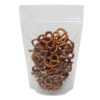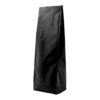Blog
Attention Workaholics…Taking Time Off Is Good For You! Here’s Why.
Scientists used to believe that during sleep and downtime our brains would literally just shut down, with no activity at all or the barest minimum activity. They thought those moments of rest meant rest for the entire body, including the brain. Many people probably still believe something similar, though science is increasingly revealing that our brains are actually incredibly active during sleep as well as other so-called “downtime.”
In 1929, a neurologist in Germany, Hans Berger, startled many of his academic peers by proposing that “the brain is always in a ‘state of considerable activity,’ even when people were sleeping or relaxing.” At the time, most believed that the brain was, of course, active to some degree in order to keep involuntary functions going, like breathing and heart-pumping; but, “they assumed that when someone was not focusing on a specific mental task, the brain was largely offline.”
It wasn’t until the 1990s and the fMRI that scientists were able to demonstrate Berger’s hypothesis; specifically, they showed that “the human brain is, in fact, a glutton, constantly demanding 20 percent of all the energy the body produces and requiring only 5 to 10 percent more energy than usual when someone solves calculus problems or reads a book.” For those of us who suck at calculus, this may seem particularly ridiculous; but, apparently, it’s true.
The most recent science has built upon this understanding in a way that needs to be applied when it comes to working. A recent literature review argued that not only is the brain not “idle” when we are resting, but that “far from being purposeless or unproductive, downtime is, in fact, essential to mental processes that affirm our identities, develop our understanding of human behavior and instill an internal code of ethics.”
Downtime, whether it be full-on sleep or just general, zoning-out rest, is vital to making sense of what we learn throughout our days as well as for vital, internal investigations. “While mind-wandering we replay conversations we had earlier that day,” for example, “rewriting our verbal blunders as a way of learning to avoid them in the future.” If you’ve ever wondered why you so often have made up conversations in your head, it’s because you’re literally practicing so you can be better at ones you may have in the future. “We subject ourselves to a kind of moral performance review,” the review concludes; “these moments of introspection are… one way we form a sense of self, which is essentially a story we continually tell ourselves.” The brain, in these moments, runs through “memories, sensory experiences, disappointments, and desires so that it may continue writing this ongoing first-person narrative of life.”
What does this have to do with work? Well, to begin with, this illustrates exactly why days off and even vacations can be so important to productivity, efficiency, and creativity at work. “Push yourself through too many hours or days of work and your brain starts to push back.” Studies that look at workplace behavior have revealed that any type of break, short or long, in the middle of the workday or in the middle of the work month, improve performance.
Just like going to the gym, every time you “exercise” your “self-control” throughout the workday, that self-control gets a little more fatigued. Your muscles need time between sets and between workouts to recover, rest and repair themselves in preparation for your next workout. This is why people alternate leg, arm, and cardio days; doing too much in a row for one muscle set can result in damage. Resting allows those muscles to actually strengthen as they learn and repair from the workout; the same is true of your brain.
Your mental resources are not limitless. Even in the film, Limitless, there were limits to the power of the brain-enhancing drug, as well as limits to the physical body and mental abilities of anyone who took it. If you drain your battery without recharging it, it’s just going to die. (We could create a drinking game for every time I use a different metaphor in this post, couldn’t we?)
The evidence that rest and free time enhance performance, creativity, and productivity, as well as overall professional success, is both anecdotal and scientific at this point, making it harder and harder to ignore. For those of us in creative work (Entrepreneurs count), it’s well-recognized that creativity rarely occurs easily when it is most needed and more often occurs while in the shower or attempting to fall asleep at night. In a study from 2014, researchers showed that those who took a break from their primary task were able to come up with the largest quantity of new ideas out of three groups observed. The findings seemed to confirm a so-called “incubation” period involved in “eureka moments.”
“Eureka,” of course, referring to Archimedes, who famously discovered the answer to a question he’d long been pondering while taking a break, getting some restful downtime, and having a relaxing bath. “Eureka” means “I have found [it]!” in Greek; the man was allegedly so pumped that he had “found it,” that he hopped out of the bath and ran naked through the streets shouting “Eureka” to the possible horror or delight of his neighbors. Oprah calls them “aha” moments.
This means you need to take breaks, short or long, throughout your workday. Coffee can only get you so far, trust me. Take a nap if you’ve been going at things particularly hard or missing out on sleep. Take vacations, or staycations, where you remove yourself from your place of work, remove yourself from your work and relax and enjoy yourself for a bit. A park in the middle of summer with leftovers as a picnic is an inexpensive way to have a real break from work even if you can’t afford a vacation to Miami or Paris.
Since I work from home, one of the best ways I’ve found to take a break from my work while still being home is to sit on the floor and make collages. I collect newspapers and magazines and old photos and anything else that inspires me and use my elementary-school-glue-sticking skills to create a bit of art. I listen to music or podcasts while doing this and try to look at a screen as little as possible. Sometimes, I’ve even come up with ideas for stories or articles I could write during this time; though, as I mentioned, my Eureka-Aha moments most often come in the shower or just as I’m about to fall asleep.
Everyone will benefit from regular time off and rejuvenating rest, trust me. Or, at the very least, trust the evidence.





